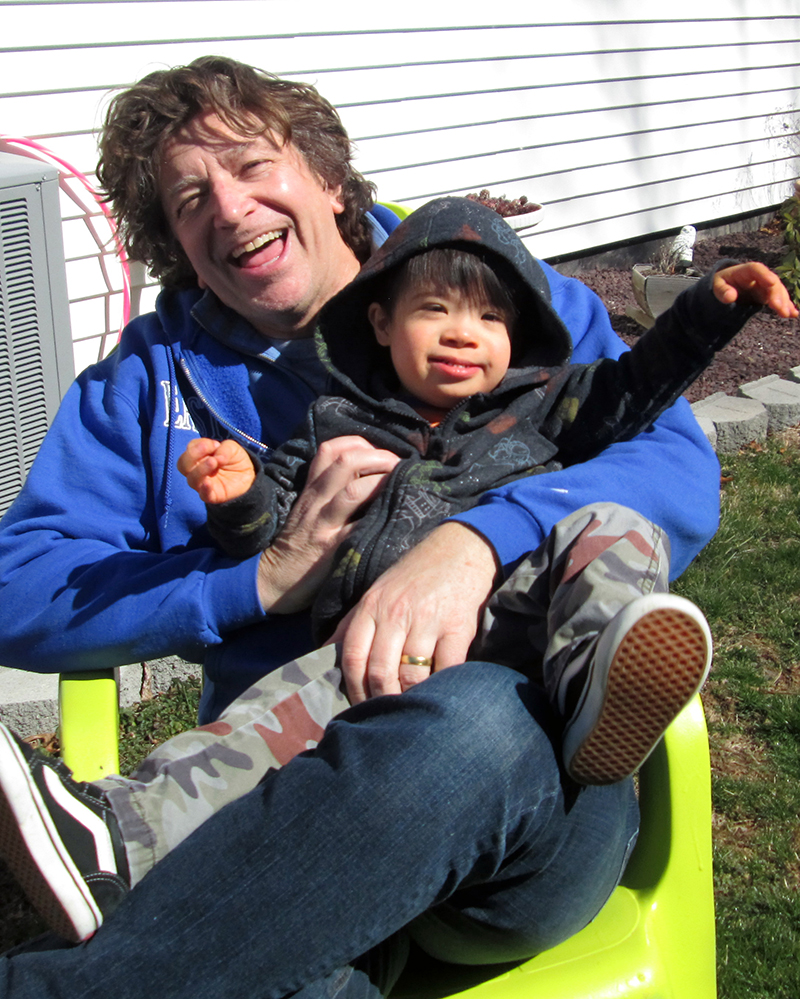I spend a few minutes of every day looking through Facebook posts of Parents with Children with Down Syndrome. I’m genuinely happy for families when I read about amazing things like a young man with Down Syndrome completing an Ironman Triathlon or even more routine things like children meeting milestones. I know how great it feels to see your child making slow, steady gains. But sometimes these posts leave me feeling a little bit of sadness.
Our son is a healthy and happy 3-year-old. He is growing and developing. Doctors and therapists are fairly happy with his progress. My wife and I are happy with his progress. And I feel good about things – until I see a post with a child around his age doing things that Alex cannot do. And then I feel this sudden twinge of sadness. I am truly happy for the child and for their family. But I feel a little like I have failed somewhere with Alex.
I am a guy who likes numbers. I am very comfortable with statistics and analysis and charts and graphs. And at one doctor visit, Alex registered a 5% on a physical measurement – meaning that 95% of other children his age were measured at a higher number. Wow. That was a little jarring and depressing. Alex’s chart did not look very good. I happened to mention this to a family doctor friend, and he grinned and told me not to worry. My son was more than a dot on a graph. My son was making good, healthy progress at his own pace. He said rather than worrying about a number on a tape measure or a dot on a chart, it was far more important that my son grow up in a safe and loving environment.
Milestones presented other challenges. Alex often did not meet developmental milestones that were appropriate for children his age. I felt these missed milestone were setbacks and failures. Why can other children do these things and he can’t? Why was there always some stress and fear around these assessments?
What I learned pretty quickly is that comparing my son to other children was an incredibly fruitless exercise. There would always be children who performed better. There would always be children who performed worse. And comparing children was not helpful and sometimes took away from the supreme joy I had at watching my boy grow.
And I should have viewed missed milestones as a guide for where our team needed to focus attention. Where was Alex weak? What skills needed more work and care? Where did we need to direct our energies? Milestones are important for some development reasons, but not meeting a milestone is neither a disaster nor a failure. There will be milestones that Alex will reach in about the typical time for a child with Down Syndrome. There will be milestones that will take him longer. Milestone are simply a guide for giving us areas of focus. And I appreciate knowing what we need to do to give Alex the best care possible.
Numbers and measurements have their place. But every child is unique and will advance when the time and conditions are right for them. So instead of worrying about evaluations and fearing assessments, I am now just concentrating on providing the best care for my son that I can, giving him opportunities to grow, and loving him as much as I possibly can. I am enjoying being part of a great team of specialists who anticipate our needs and do their best to plan and prepare. And I am enjoying being an active part of my son’s growth and progress, working and playing with Alex to do things when the time is exactly right for him.

